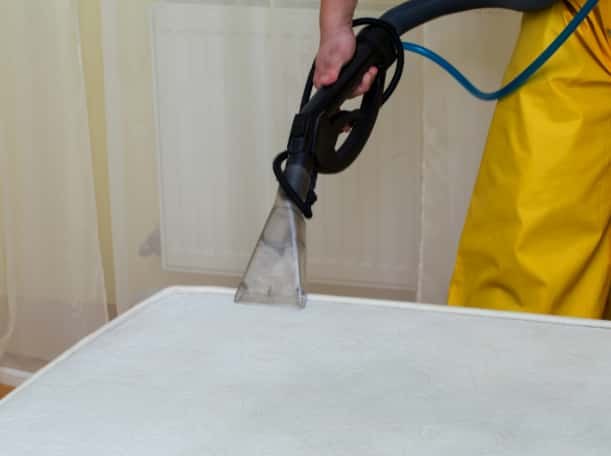Carpet cleaning disputes between tenants and landlords are a common source of tension during the end of a tenancy. In many cases, these disputes arise due to differing expectations about the condition in which carpets should be left, leading to disagreements over cleaning responsibilities and potential deductions from deposits. At Ruislip Carpet Cleaning Solutions, we understand how important it is to avoid these disputes and ensure a smooth end-of-tenancy process. In this blog, we’ll explore common carpet cleaning disputes and offer advice on how to avoid them.
1. Understanding Your Tenancy Agreement
The first step in avoiding disputes is understanding the terms of your tenancy agreement. Many agreements include specific clauses about the condition in which carpets must be left at the end of the tenancy. It’s important for both tenants and landlords to be clear on these requirements from the start. Typically, tenants are expected to return the property in the same condition as when they moved in, allowing for reasonable wear and tear.
However, disputes often arise when tenants interpret “reasonable wear and tear” differently from landlords. For example, while minor fading or slight matting might be expected over time, noticeable stains, odours, or excessive dirt are often considered beyond normal wear and tear. To avoid misunderstandings, both parties should ensure that the tenancy agreement clearly outlines expectations for carpet cleaning.
2. End-of-Tenancy Cleaning Expectations
A common point of contention is whether carpets need to be professionally cleaned before the tenant vacates the property. Some landlords require professional carpet cleaning as part of the tenancy agreement, while others may only expect the tenant to ensure the carpets are left in a clean condition.
If the agreement does not explicitly state that professional carpet cleaning is required, tenants should still consider having the carpets professionally cleaned, especially if there are visible stains or a noticeable build-up of dirt. This not only helps secure the return of the full deposit but also demonstrates goodwill and a commitment to leaving the property in excellent condition.
At Ruislip Carpet Cleaning Solutions, we offer professional end-of-tenancy carpet cleaning services that meet the standards expected by landlords and letting agents in Ruislip, Hillingdon. Our services help tenants avoid potential disputes and ensure that the carpets are in top condition.
3. Documenting the Condition of the Carpets
One of the most effective ways to prevent disputes is by keeping a thorough record of the condition of the carpets at both the start and end of the tenancy. When moving in, tenants should document the state of the carpets, noting any pre-existing stains, damage, or discolouration. Taking photographs and providing written notes as part of the inventory report can serve as valuable evidence if a dispute arises later.
Similarly, at the end of the tenancy, documenting the condition of the carpets after cleaning can help tenants prove that they have met their responsibilities. If the carpets have been professionally cleaned, providing a receipt to the landlord is an additional step that can help avoid disagreements.
4. Reasonable Wear and Tear vs. Damage
A key area of dispute is the difference between normal wear and tear and actual damage. Wear and tear refer to the gradual deterioration of the carpets due to everyday use. This is considered normal and should not be grounds for deductions from a tenant’s deposit. Common examples of wear and tear include light fading, small frays, or slight flattening of high-traffic areas.
On the other hand, damage refers to significant issues that go beyond normal use, such as large stains, burns, or pet damage. These issues may require professional intervention or even replacement, and landlords are within their rights to deduct the cost of repairs or cleaning from the deposit in such cases.
To avoid disputes, tenants should aim to keep carpets in good condition throughout the tenancy by addressing stains and spills promptly and considering routine professional cleaning if necessary.
5. Open Communication Between Tenants and Landlords
Open and transparent communication between tenants and landlords is essential to avoiding disputes. If tenants are unsure about the landlord’s expectations for carpet cleaning, it’s always best to clarify these details early on. Similarly, landlords should communicate any specific cleaning requirements at the start of the tenancy to avoid confusion later.
In cases where damage or excessive wear occurs during the tenancy, tenants should inform the landlord as soon as possible to discuss the best course of action. This proactive approach can help resolve issues before they escalate into disputes at the end of the tenancy.
Conclusion
Carpet cleaning disputes between tenants and landlords can often be avoided with clear communication, an understanding of the tenancy agreement, and proper documentation. At Ruislip Carpet Cleaning Solutions, we offer professional carpet cleaning services that help tenants meet their obligations and leave carpets in pristine condition. Whether you’re a tenant looking to secure your deposit or a landlord seeking reliable cleaning services, our team is here to help. Contact us today to ensure your carpets are properly cleaned and avoid any potential disputes.
Call us on: 01895 540 999
Click here to find out more about Ruislip Carpet Cleaning Solutions
Click here to complete our contact form and see how we can help with your carpet needs.

